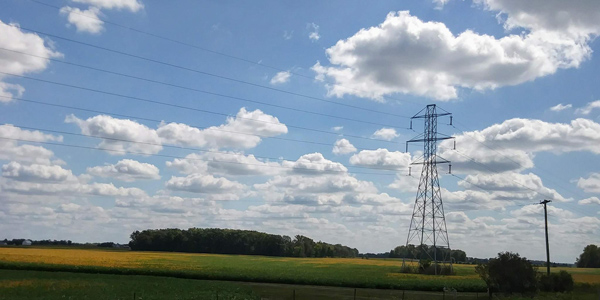By Amanda Durish Cook
While not even a year has passed since MISO implemented its new interconnection queue process, one market participant is already urging stakeholder groups to consider a two-stage queue instead of the RTO’s selected three-stage design.
EDF Renewable Energy argues that the “flawed” three-stage process is worsening the interconnection backlog, and that MISO has the means to implement a two-stage queue. During a Nov. 7 conference call, the company asked the RTO’s Steering Committee to assign the appropriate stakeholder committee a discussion on shortening the queue process for vetted projects and developing an earlier assessment of milestone payments.
“MISO’s published data shows a serious backlog in its queue,” EDF’s Omar Martino wrote in comments to the RTO. “It needs a streamlined process so that projects that demonstrate they are ready to proceed toward an interconnection agreement can actually achieve that.”
Steering Committee members determined they need more information on the EDF proposal before they can assign the issue to a stakeholder committee. They asked the company to return in January with a fuller explanation.
Bruce Grabow, an attorney with Locke Lord representing EDF, said that while MISO’s three-stage process is a “good” model, it doesn’t require enough front-end milestone fees to discourage “speculative megawatts.” He said charging milestone payments before the definitive planning phase (DPP) of the queue could discourage uncertain projects from entering.
In an effort to reduce restudies that caused backlogs in the old queue process, MISO’s new queue design divided the DPP — the final stage of the queue — into three phases in which system impact studies are performed three separate times in lieu of restudies. At the time, MISO estimated that interconnection customers would spend 460 days in all three stages combined, instead of the previous average 589 days in the DPP.
“Shore up a bit more the site control from the beginning,” Grabow urged, noting that 60 to 70% of MISO’s queue entrants now enter the queue without securing site control, electing to instead pay a $100,000 fee as part of the new queue rules.
“We’ve opened the floodgates, so to speak,” he said.
MISO views a queue overhaul so soon after the January approval of the new design as “premature,” MISO Stakeholder Relations Specialist Justin Stewart said. “FERC approved the process in January, and we’d like to see a full cycle through.”
Grabow said he was only asking to begin a discussion in the Planning Advisory Committee.
MISO External Affairs Director Vikram Godbole said stakeholders debated the merits of a two-phase queue process in 2015 and ultimately decided against it. He asked stakeholders to allow time for the new queue design to work before proposing modifications.
“I’m personally wary of making changes before we see how the changes we’ve just made roll through the process,” said PAC Chair Cynthia Crane.
Similar Requests Denied in FERC Order
EDF’s request for a faster queue comes on the heels of a Nov. 3 FERC order that denied a rehearing of several aspects of the new queue process.
That order stemmed from a filing by a group of generation developers who complained that MISO’s new process had failed to actually streamline the queue because it does not update system data as quickly as promised and charges only $100,000 upfront when a project developer has not yet secured site control (ER17-156).
The generation developers also questioned FERC allowing MISO to conduct restudies after a generation interconnection agreement has been signed, and also contended that a developer that withdraws its projects within six months of signing such an agreement should have to pay to mitigate the cost shifts stemming from the cancellation.
The commission rebuffed most of the developers’ arguments, saying the group failed to provide evidence or reasoning to support its proposal, and that MISO’s role was to “minimize but not necessarily eliminate restudies.”
But FERC did agree with the developers’ concerns about projects withdrawing from the queue after executing interconnection agreements, which prompts the need for restudies and increases interconnection costs. The commission directed MISO to include data on the number of such withdrawals — and the number of resulting restudies and their cost impacts — in its semiannual reports on the queue process.
FERC denied a request for a special “fast track” study process for developers who can demonstrate “site control, evidence of power sales opportunity and security in the amount of 20% of all identified network upgrades,” but it advised MISO to alleviate delays for those developers anxious about missing production tax credit deadlines.
The developers claimed that MISO’s queue transition timeline is already behind schedule, with interconnection agreements for the MISO West region February 2017 transition group delayed until June 2019, “a full five months beyond the planned January 2019 completion date.”
MISO argued that adding a faster study timeline option would throw its interconnection process “into disarray.”
“Although such delays suggest that MISO’s queue reforms may not be working as well as intended, we do not find that these delays rise to the level of the ‘extraordinary circumstances’ the commission has required to reopen the record … and to disturb the finality of the DPP framework accepted in the Jan. 3 order,” the commission said. “We strongly encourage MISO to consider measures that could be adopted to address the delays.”





